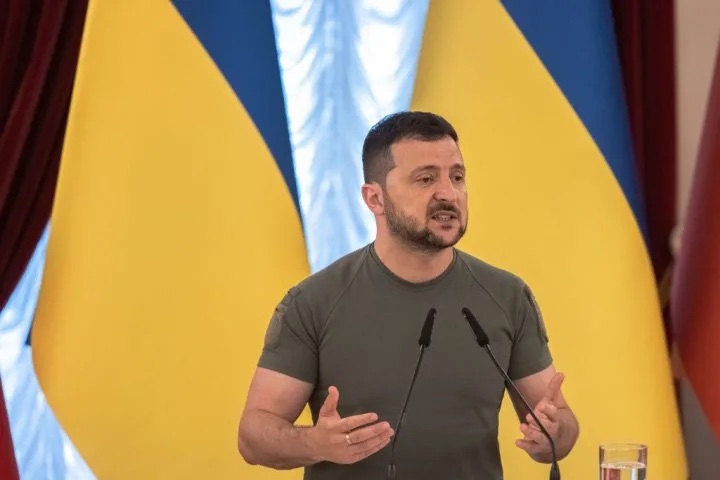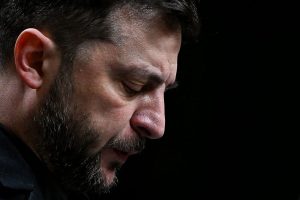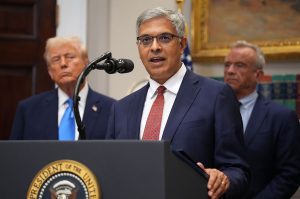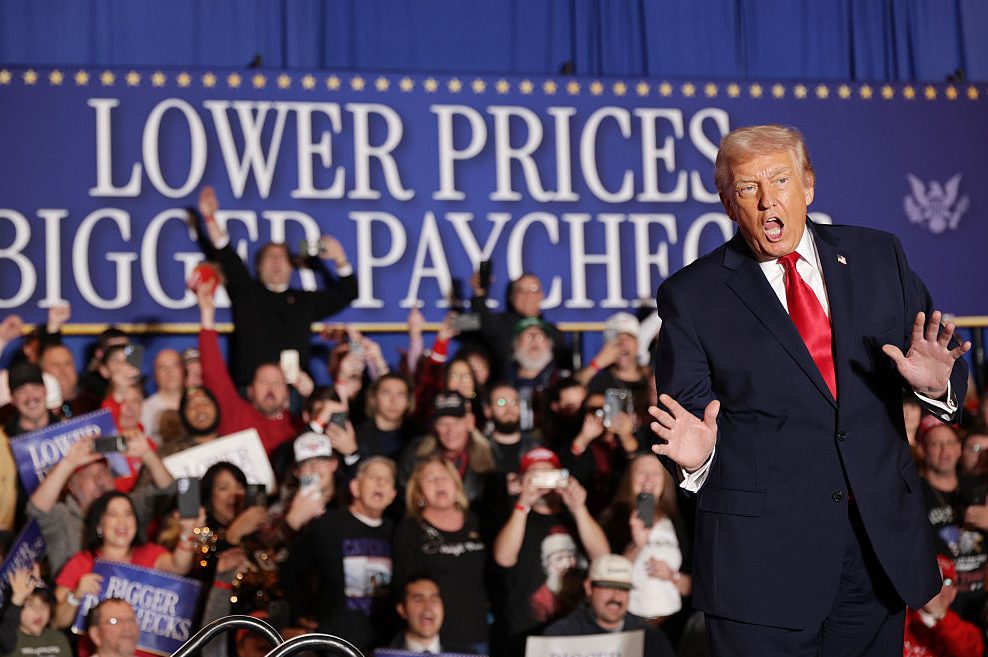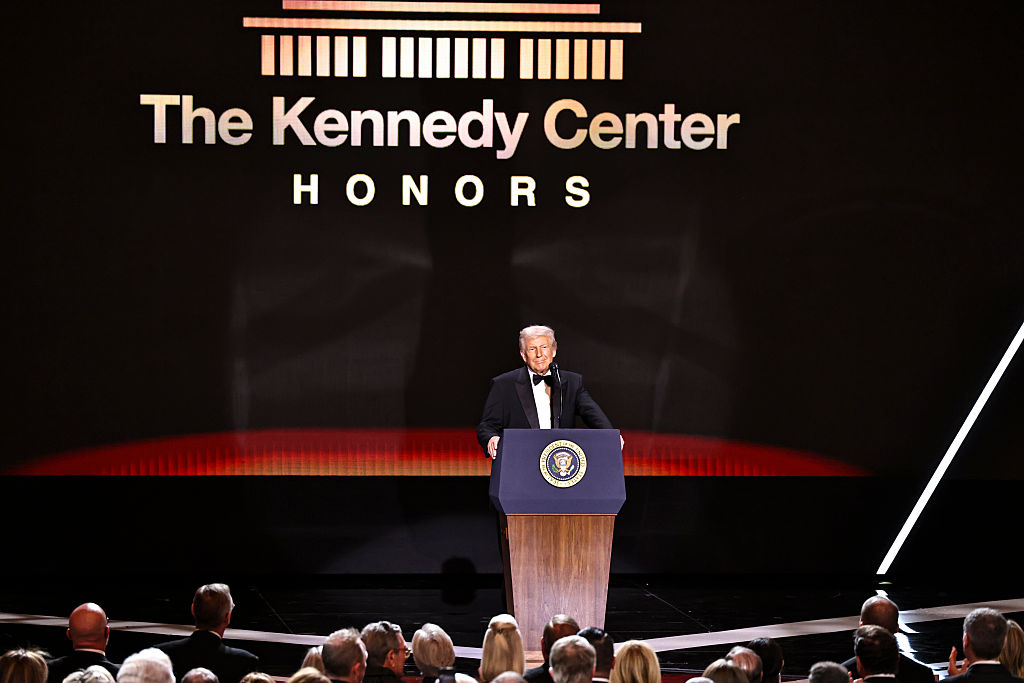President Joe Biden has been busy curbing expectations about NATO’s looming decision over Ukraine’s future membership. Starting the accession process at the summit in Lithuania this week would be “premature,” Biden said. Ukraine still needs to meet other qualifications for membership, “including democratization,” the president added.
Biden’s hesitation is misplaced. The Vilnius summit offers an opportunity for NATO to redress the historic mistake of the 2008 meeting in Bucharest. Back then, NATO failed to offer membership action plans to Ukraine and Georgia and thus invited Russian aggression — including the current war.
This latest summit is an opportunity to bring the conflict in Ukraine to an early end by signaling that Kyiv would join as soon as the war concludes; ideally this would happen through a formal ceasefire or a peace agreement. Prevaricating about Ukraine’s path to NATO, in contrast though, tells the country that for the foreseeable future they can expect to face the Russian threat alone.
The two options have stark consequences for Ukraine’s decision-making about the war. If Kyiv is blocked from signing up, only a thorough defeat of Russia and Ukraine’s permanent hypermilitarization can secure the country’s sovereignty. However, the prospect of NATO membership as soon as the war ends or reaches a frozen state would mean that the contours of a peace deal with Russia, or the magnitude of Russia’s defeat, might matter far less to Kyiv.
Ukrainians want to restore their country’s full territorial integrity to its internationally recognized borders as a matter of principle and liberate their fellow citizens suffering under Russian occupation. But their desire to do so is also driven by the strategic need to retake the land bridge connecting Donbas with Crimea, as well as Crimea itself. Under Russian control, these territories provide the Kremlin with a launchpad for new attacks against Ukraine; they bring a much larger part of Ukraine’s territory into the range of Russian missiles and cut Ukraine off from much of its Black Sea coast.
If Ukraine could find its way into NATO, such considerations would carry less weight. At first glance, the Baltic states are hard to defend, given their proximity to Russia. In practice though, Estonians, Latvians and Lithuanians sleep soundly at night knowing that Putin is not foolish enough to launch a war against the alliance. NATO was built to do one thing: deter Russian aggression — and it does it well.
The prospect of Ukraine joining NATO would undoubtedly raise the war’s stakes for the Kremlin. But realistically can Putin escalate? Nuclear bluster aside, he is running a mafia state, not a death cult. When it comes to conventional warfare, the Russian defenses are working with extremely limited operational reserves and may therefore be “brittle,” as an assessment by the Institute for the Study of War put it.
The Russian military, after all, was unable to even respond to the Wagner mercenary group’s mutiny and spectacular march on Moscow in June. Whether or not Putin wants to drag the war out forever, he has already thrown pretty much everything in his conventional arsenal at the problem.
What’s more, Ukraine has a say in when this war ends. In fact, what has made this war a potentially longer one is primarily Ukraine’s strategic need to reconquer its land in its entirety, including the land bridge to Crimea and Crimea itself.
So far, Ukrainians have proven, repeatedly, to be perfectly capable of stopping Russia in its tracks, fighting it to a standstill and “freezing” the conflict. Without external guarantees though, that just is not good enough to guarantee Ukraine’s long-term security. With an offer of NATO membership in hand, it might just clinch it.
Ukraine is the ultimate arbiter of how far it wants to go in its war effort. Yet, a credible prospect of NATO membership, as soon as the fighting stops, might alter Kyiv’s thinking in exactly the way that “peaceniks” around the world desire: making it more amenable to cede territory, much of which Russia has occupied for almost a decade. Whether Putin jumps at the opportunity to make a limited land grab and claim victory, while tacitly accepting that the rest of Ukraine will remain forever off limits because of NATO’s Article 5, is up for debate.
What is beyond debate, however, is the enormous cost of a lengthy war — in Ukraine and beyond. If Ukrainians walk away from Vilnius with the understanding that they are on their own in dealing with Russia, it is exceedingly unlikely that they will show any deference to our interests either in their prosecution of the war or in their future alliances.
By now, it should be obvious that Ukraine will not be overrun by Russian tanks. The question facing leaders of NATO countries meeting in Vilnius is not whether the alliance should take on yet another source of future liabilities, but rather how much influence the West wants to have over the future of populous, well-armed and increasingly assertive country in Europe’s dangerous Eastern borderlands. The wise, prudent choice is to bring it to the fold, not give it the cold shoulder.
This article was originally published on The Spectator’s UK website. Subscribe to the World edition here.



